Indah Rufiati – Fisheries Lead at Yayasan Pesisir Lestari (YPL), Indonesia
During my career, I have had the opportunity to join many small-scale fishing trips in various parts of Indonesia’s archipelago. I’ve always been concerned about the risks and dangers faced by fishers at sea, especially as some do not have the skills or training for what to do in an emergency. Many small-scale fishers go out to fish with limited or almost no safety equipment.
Risks at sea for small-scale fishers
Fishing is a dangerous profession because fishers deal with changing weather patterns, big waves, strong wind, heavy rain, and exposure to the sun. The location and quantity of catches are unpredictable. Small-scale fishers use small to medium-sized wooden or fibre boats (only around 3 to 8 meters long and 1 meter wide). Small-scale fishers face uncertainty every single day.
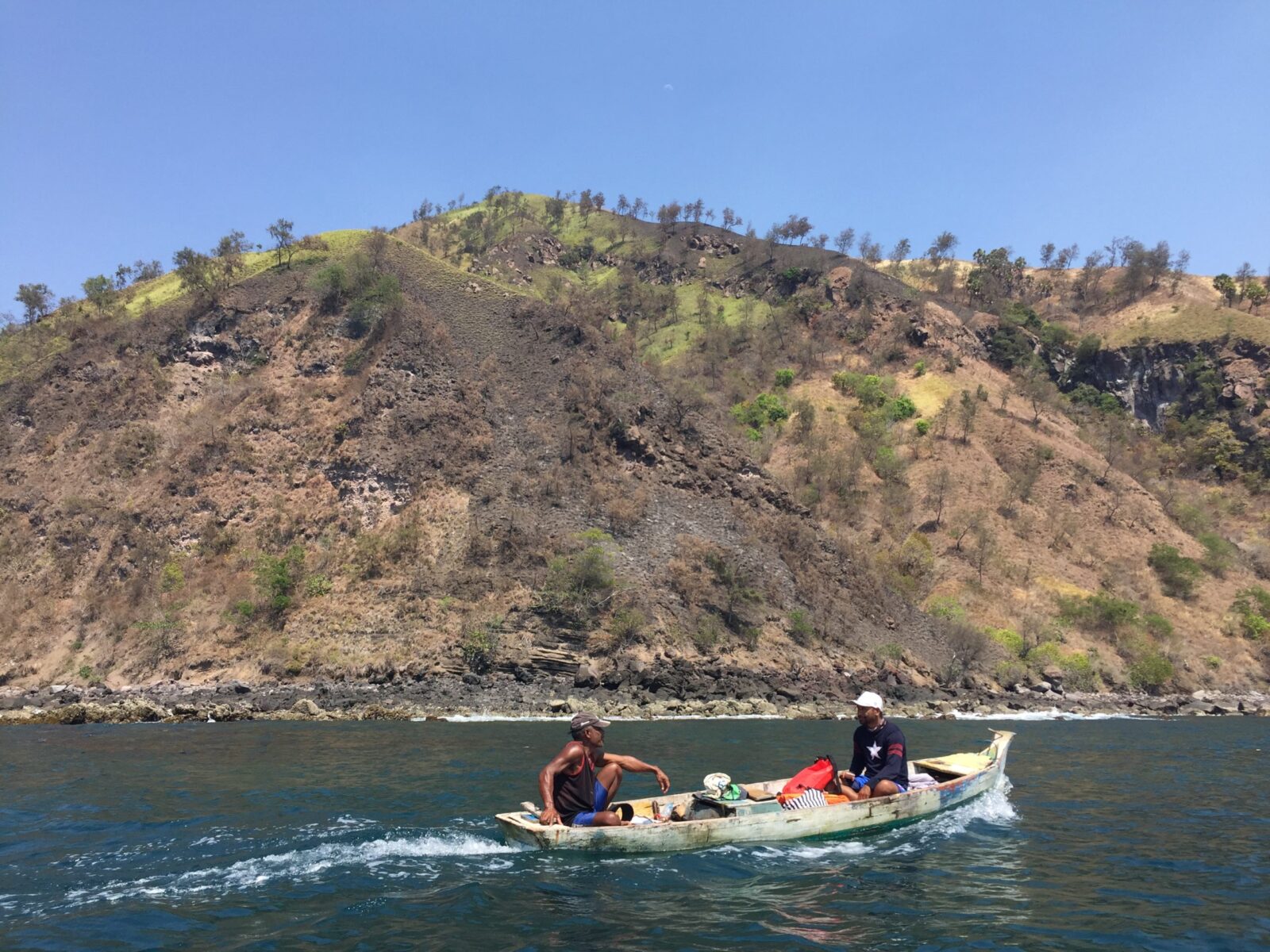
Small-scale fishers in their boat in Ende, East Nusa Tenggara. The vessels used by small-scale fishers are great for agility and being able to get to small spaces and shallow water, but they are also very vulnerable to the elements. Being a small-scale fisher comes with significant risk. Photo credit: Indah Rufiati.
Over the years, I have heard about so many accidents that happen out at sea. The severity varies from broken engines to lost or broken propellers, from running out of gas or food, boat leaks, and severe hand injuries from handlines. Even worse are the cases where fishers drown, their boats are overturned, they are lost or stranded, they have a collision with another boat, and there are even cases where fishers have had a fire onboard. Many fishers have gone missing and are still not found. Destructive Fishing Watch (DFW) Indonesia recorded that 83 fishers went missing in the Indonesian seas between December 2020 and June 2021. They all disappeared as a result of an accident of some sort onboard, and most of these accidents took place on small vessels.
Keeping small-scale fishers safe
In 2022, in collaboration with the National Search and Rescue Agency (BASARNAS), the Indonesian Red Cross (PMI), and the Indonesian Navy, our local NGO partners JAPESDA, JARI, TANANUA, FONEB and ISTDA (International Sci-Tech Diving Association) conducted safety at sea training for 121 small-scale fishers in thirteen villages in East and West Nusa Tenggara and Southeast and Central Sulawesi, some of the most eastern islands of Indonesia. The training covered basic safety at sea and first aid skills. The workshop also showed them how to get in touch with BASARNAS – the government’s emergency response agency.
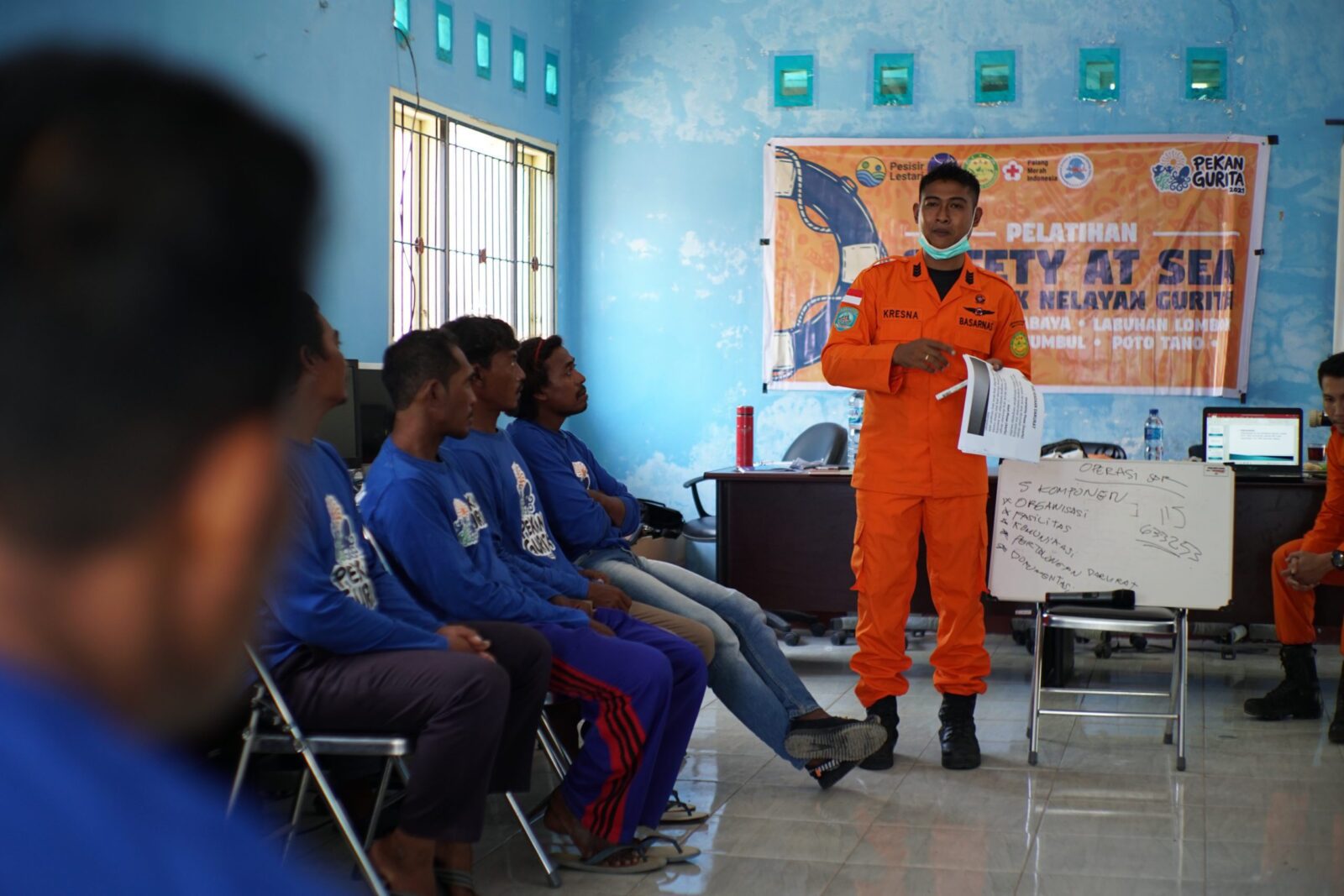
BASARNAS, the National Search and Rescue Agency in Indonesia, started their safety at sea and first aid training with some theory and background in a classroom setting. Photo credit: JARI.
The BASARNAS team taught CPR, how to use items available in an emergency as a floating device, how to treat cuts, and how to bandage wounds. After the class session, the participants were taken out to sea to practice their new skills in the water. To understand the information about safety at sea in the village, we also developed a questionnaire to be answered by the participants.
The Luwuk Banggai SAR Post Team delivers training to the general public and fishers in Uwedikan Village on rescue techniques in case of an emergency. This is going to make a great difference to the safety of fishers, as previously people have been reluctant to help out during an accident because they had too little information about how to conduct a rescue. Photo credit: JAPESDA.
Hani Nusantari – Education and Outreach Coordinator from Lembaga JARI – explains what was covered during the safety at sea training:
It takes two days to complete the training. The first day is mostly theory, where the fishermen learn about occupational health and safety, search and rescue management, medic first aid, and games. You definitely need some games and activities, because it takes the whole day, so we need some fun games to refresh!
The second day is the practical day when we assess their swimming ability, we train them about water safety and water rescue, including medic first aid, water survival – how to survive with any tools, Search & Rescue (SAR) management simulation, how to tow and carry victims with two, three and four people, and also games such as beach flag and beach rugby. Beach rugby represents the chaos that the fishermen might face in the sea when they are involved in an accident, and this is how they learn how to handle it.”
After the theoretical part of the course, it was time for the participants to put their new knowledge into practice. Photo credits: JARI.
This is the first time we’ve had safety at sea and first aid training. The trainers are very enthusiastic and helpful. I learned how to help others when they are in an accident. I will also share this information with other fisher friends. The outdoor practice was fun too; it increases the sense of brotherhood among fishers
– Mahsin, a fisher in East Lombok District, West Nusa Tenggara Province
Next steps
We plan to deliver safety at sea and first aid training to other communities around Indonesia. We currently work with sixty-nine villages across the archipelago, and we hope to be able to deliver safety at sea and first aid training to all of them.
We are looking to further collaborate with BASARNAS and other organisations to develop materials like videos of our training sessions for online audiences. We will also encourage fishers’ groups with savings and loan initiatives to collectively buy safety at sea equipment and first aid kits. We also see the importance of training the women of the communities too, so we are encouraging more women to participate in training sessions.
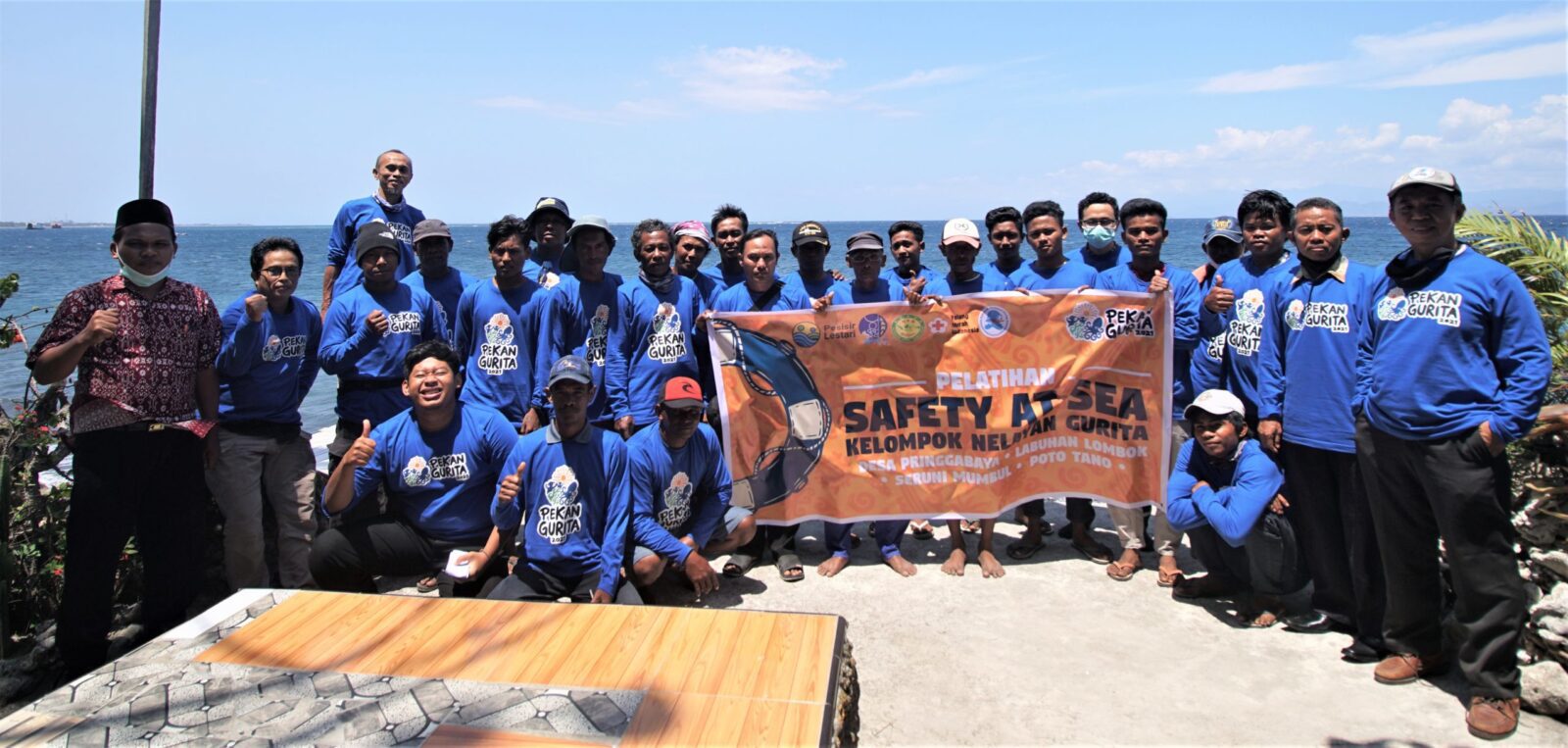
Fishers from West Nusa Tenggara Province after completing the safety at sea and first aid training. Photo credit: JARI.


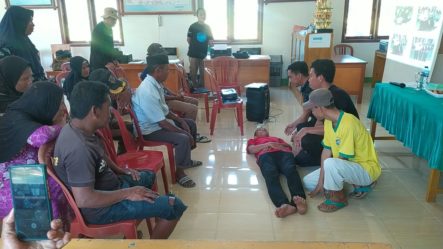
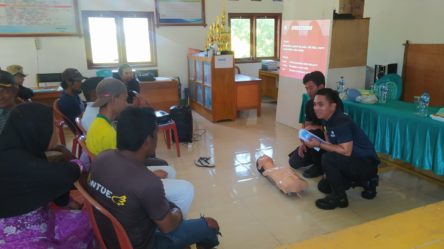
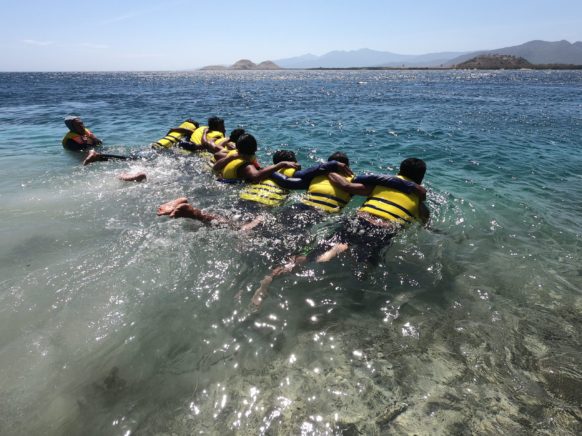
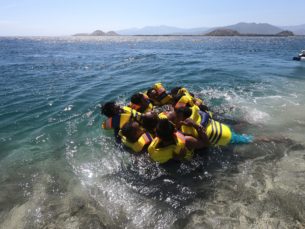
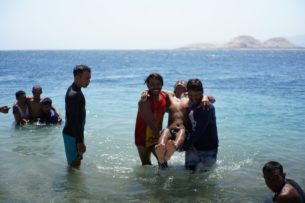
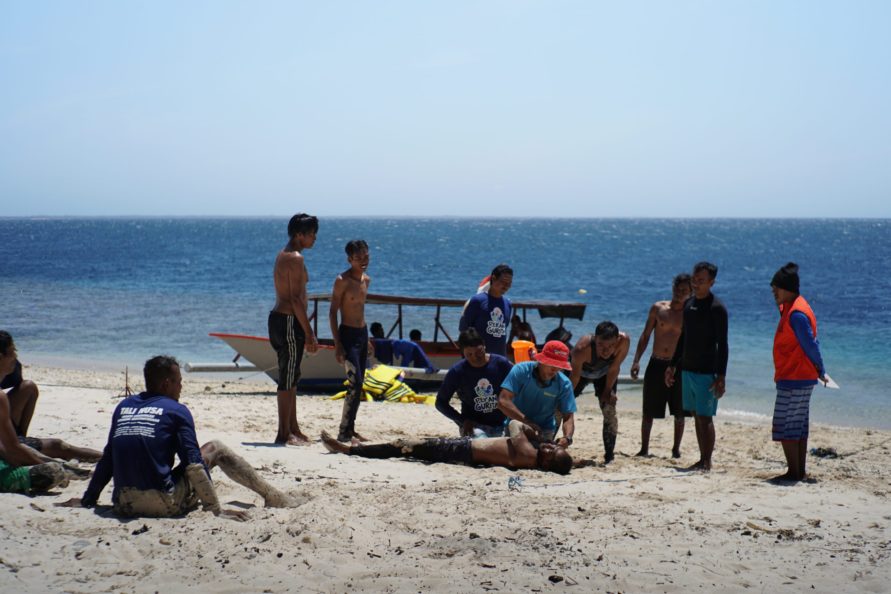
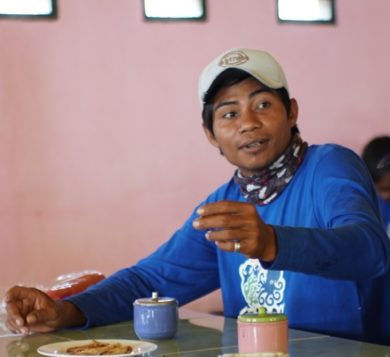 This is the first time we’ve had safety at sea and first aid training. The trainers are very enthusiastic and helpful. I learned how to help others when they are in an accident. I will also share this information with other fisher friends. The outdoor practice was fun too; it increases the sense of brotherhood among fishers
This is the first time we’ve had safety at sea and first aid training. The trainers are very enthusiastic and helpful. I learned how to help others when they are in an accident. I will also share this information with other fisher friends. The outdoor practice was fun too; it increases the sense of brotherhood among fishers